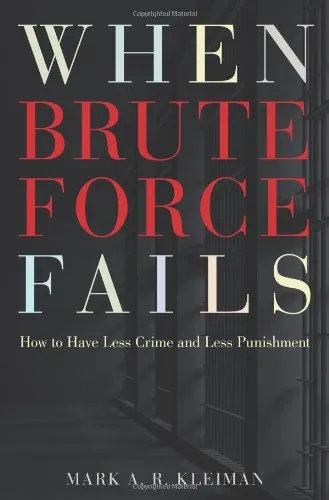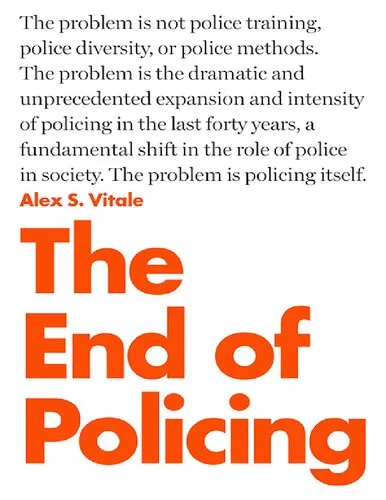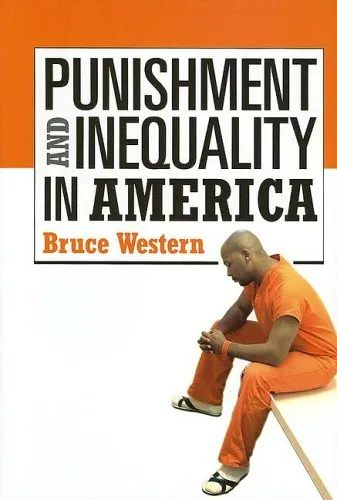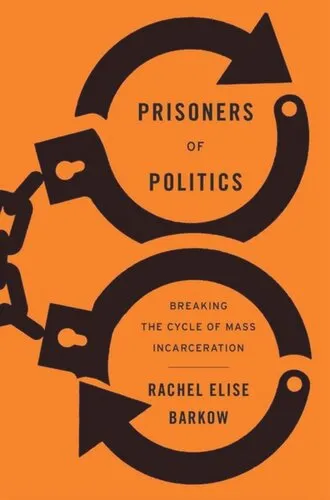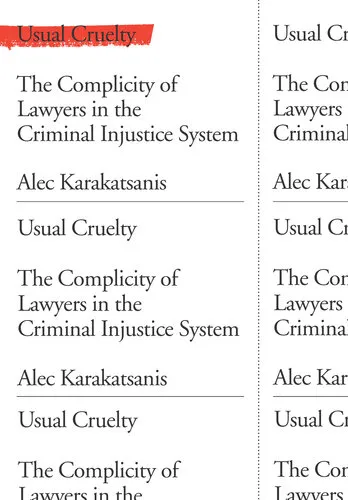When Brute Force Fails: How to Have Less Crime and Less Punishment
4.1
Reviews from our users

You Can Ask your questions from this book's AI after Login
Each download or ask from book AI costs 2 points. To earn more free points, please visit the Points Guide Page and complete some valuable actions.Related Refrences:
Persian Summary
Welcome to an in-depth introduction to "When Brute Force Fails: How to Have Less Crime and Less Punishment" by Mark A. R. Kleiman, a transformative piece of literature that tackles the pervasive issues within the criminal justice system. This book offers pragmatic solutions for reducing both crime and incarceration by challenging conventional methods and proposing innovative strategies.
Detailed Summary of the Book
The central thesis of "When Brute Force Fails" revolves around the inadequacy of traditional punitive measures in effectively reducing crime rates. Mark A. R. Kleiman delineates the inefficiencies of the existing system, which often applies brute force tactics like lengthy incarcerations without significantly deterring criminal behavior. Instead, Kleiman advocates for a nuanced approach that emphasizes deterrence rather than sheer punishment. By focusing on creating swift, certain, yet mild consequences, the book suggests that it is possible to achieve better compliance with the law, ultimately minimizing the need for harsh penalties.
Throughout the book, Kleiman introduces the concept of "dynamic concentration," where law enforcement resources are strategically allocated to areas with the highest crime rates, creating a concentrated effort that maximizes the impact of preventive measures. Using case studies and empirical evidence, Kleiman underscores the effectiveness of targeted policing and community-based interventions. The book makes a compelling case for policy reforms that not only reduce crime but do so in a manner that is more humane and economically sensible.
Key Takeaways
- Traditional methods of increasing punitive measures often fail to deliver the intended reduction in crime.
- Effective crime reduction can be achieved through strategies that prioritize certain and swift consequences over severity.
- Lesser punitive measures can lead to better outcomes for both individuals and society.
- Dynamic concentration and strategic allocation of resources are crucial for maximizing law enforcement effectiveness.
- Implementing community-based interventions and rehabilitation programs can lead to sustainable crime reduction.
Famous Quotes from the Book
"The criminal justice system has been waging a losing battle against crime for decades, but that doesn't have to be the case if we embrace smarter, evidence-based solutions."
"When punishment is swift and certain, it need not be severe to be effective."
"Reducing both crime and incarceration is not only possible but essential for a fair and just society."
Why This Book Matters
Mark A. R. Kleiman's "When Brute Force Fails" is an essential read for policymakers, law enforcement professionals, and anyone interested in the future of the criminal justice system. It challenges the status quo by demonstrating that more humane and enlightened methods of crime prevention are not only possible but also beneficial. The book's emphasis on evidence-based policies offers a blueprint for reforming a system that too often prioritizes punishment over rehabilitation. At a time when mass incarceration and law enforcement practices are under scrutiny, Kleiman provides a timely and hopeful roadmap for change.
Ultimately, this book matters because it shifts the conversation from punishment to prevention, pushing us to rethink how we enforce laws and rehabilitate offenders. By addressing the root causes of crime and employing strategies that promote social equity, "When Brute Force Fails" serves as a foundational text in the movement toward criminal justice reform. It offers a vision of a system where the goal is not just to punish crime but to prevent it, enhancing both public safety and human dignity.
Free Direct Download
You Can Download this book after Login
Accessing books through legal platforms and public libraries not only supports the rights of authors and publishers but also contributes to the sustainability of reading culture. Before downloading, please take a moment to consider these options.
Find this book on other platforms:
WorldCat helps you find books in libraries worldwide.
See ratings, reviews, and discussions on Goodreads.
Find and buy rare or used books on AbeBooks.
1564
بازدید4.1
امتیاز0
نظر98%
رضایتReviews:
4.1
Based on 0 users review
Questions & Answers
Ask questions about this book or help others by answering
No questions yet. Be the first to ask!
